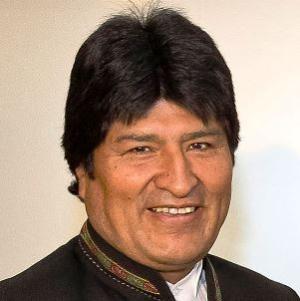During StoptheDrugWar.org's 30+ year history, our organization has had to navigate painful and troubled waters before.
A psychedelic legalization initiative also failed, but there were a couple of glimmers of hope.
Dallas wasn't the only Texas locality to vote to decriminalize this week, Kentucky localities vote to allow medical marijuana businesses, and more.
Idaho activists have filed a ballot measure to legalize the possession and cultivation of personal use amounts of marijuana, say goodbye to Evo Morales, and more.
Iran hangs two more drug prisoners, Italy moves toward banning hemp flower products, and more.
Dear Drug Policy Reformer:
One of the world's top criminals was elected President of the United States last week. As numerous former Trump staffers and more than 1,000 national security leaders have warned, grave dangers lie ahead.
In the meanwhile, the policy process continues. Congress will pass budgets. Staffers will work on their issue assignments. Executive branch officials will make decisions on the administrative processes in their portfolios. Judges – who don't always bow to the Trump signet ring, even now – will rule on cases. And there's the states.
During our 30+ year history, our organization has had to navigate painful and troubled waters. During wars, the aftermath of terrorist attacks, the COVID-19 pandemic, the first Trump presidency, and other crises – during times when the political environment was less friendly vs. more – we identified ways to do our work that were appropriate for the moment and advanced reform.
Sometimes that meant spending more of our time building the support needed for the changes we want, to be leveraged at times of opportunity later. Often it meant having to beat back bad new legislation or mitigate its worst aspects. But even at the best of times, long-term advocacy and organizing is part of what organizations like ours do.
We have also worked extensively, during the first Trump term and since, on international human rights problems that connect closely to the big-picture challenges facing global democracy. These include the rise of authoritarian demagogues; the attacks on free media; the normalization of government violence; and the supercharging by social media of polarization and disinformation, a problem with deep impact on elections and policymaking. We've learned something about democracy-challenged societies, and how advocates in them work. We're actively engaged in international efforts to strengthen rule of law.
Back in the US, the indications for Trump and drug policy don't point uniformly in one direction. But they're mainly bad:
- In December 2016 and again in May 2017, Trump praised the now former Philippines' president Rodrigo Duterte, specifically for his murderous anti-drug program.
- Trump's response to the fentanyl crisis includes calls to carry out death penalty executions for some drug offenses; and to fight drug cartels by invading, sending "kill squads," firing missiles into or dropping bombs on Mexico.
- The Trump administration's opioid task force, headed by Kellyanne Conway, took a political approach that rendered it not very consequential.
- Trump not only opposed calls for policing reform; he actively encouraged acts of violence against reform advocates.
On cannabis (marijuana) policy, the incoming president has made some positive statements. Part two of our Harris-Walz endorsement discusses why we think there may be less to that than meets the eye. As president, Trump granted clemencies to a handful of federal drug war prisoners who were serving lengthy undeserved sentences. But that had a lot to do with advocacy by a celebrity couple who are no longer together. He also signed the First Step Act, a criminal justice reform bill championed by his son-in-law Jared Kushner, which has been helpful in getting some low-risk prisoners out, though more so during the pre-vaccine part of the pandemic. Trump is reported, however, to have expressed regret for his son-in-law's advice on supporting criminal justice reform.
Also on our minds are disappointing results for drug reform ballot initiatives in this election. But as our overview notes, there were glimmers of hope. Nebraska voters passed medical marijuana. In Florida, where a marijuana legalization initiative failed to reach the needed 60%, it did at least garner 56% of the vote – a majority. That was after the governor diverted $4 million of opioid settlement funds to run anti-marijuana ads in the midst of the campaign season.
The other two legalization initiatives that failed were in North and South Dakota, obviously not the easiest places for us. We're disappointed that Massachusetts' psychedelics initiative didn't pass. But psychedelics reform despite a lot of excitement is still politically young.
Despite all the challenges, there are members of Congress who often agree with us, in both parties. And for Democrats, who support us by far greater numbers than Republicans, and whose congressional leadership are far more likely to allow good votes to happen, structural factors favor their returning to power in both chambers of Congress in two years. That is admittedly based on historical voting patterns continuing, which is never a certainty. It also depends on just how far unscrupulous allies of the incoming president have advanced their vote suppression activities by then.
Additionally, some of the incoming president's campaign promises, if carried out, will wreak economic havoc. And changes plotted by monarchist networks such as Project 2025, risk breaking the government's ability to respond effectively at times when Americans expect it, such as in the aftermath of natural disasters. Government failure at critical times would turn some of Trump's supporters against him. If there is a noticeable deterioration in the aged new president's mental state, as many observers believe is already occurring, that may do so as well.
After Donald Trump's 2016 election, we decided we would observe the incoming president's job performance with an open mind, be prepared to give credit if he did anything good, but also speak plainly about how we view his presidency and the state of affairs in our country. In 2024 and forward, we will continue to report honestly about the politics of drug policy, including that of opponents and allies from both parties, and of the White House.
And we'll continue to work, as we're able, with responsible individuals from both major parties. If any good initiatives come from the White House or its allies, we'll engage with them constructively. What we won't do, however, is contribute in any way to the normalization of Trump or Trumpism, nor to the downplaying by his enablers of the crimes and abuses he's now poised to continue.
Our 30+ years of work in US policy, including during crises, and our work in the international sphere on issues tied closely to democracy, mean we have a role to play during the uncertain days ahead. We're figuring out right now what that means. With continued support in all the ways that are needed, we'll be ready. Thank you for reading this far in my email, and for the part that you play.
Sincerely,

David Borden
StoptheDrugWar.org
Washington, DC
"US and UN Drug Policy Reform"
https://stopthedrugwar.org
P.S. We could really use support of the financial kind right now, if you're able. To make a donation online, tax-deductible for our educational programs or non-deductible for our lobbying programs, please click here. There's also information on how to donate through other paths, online here.
back to top
Three marijuana legalization initiatives and a psychedelic legalization initiative failed. But there were a couple of glimmers of hope.

People lining up to cast their ballots. (Creative Commons)
Drug reform initiatives were on the ballot in several states, and like the Democratic Party nationally, they were generally defeated at the polls. All three marijuana legalization initiatives lost, as did a psychedelic legalization initiative. And a regressive California sentencing initiative won. There were a couple of bright spots though: a medical marijuana initiative won and so did a marijuana labor peace initiative.
Here is how it went:
Marijuana Legalization
Florida -- LOST
Despite funding by multi-state marijuana operators to the tune of more than $100 million, the Amendment 3 marijuana legalization constitutional amendment was defeated, despite getting a majority of the vote. According to the Florida Division of Elections, 55.89 percent of voters approved it. But because it was a constitutional amendment, it needed 60 percent.
According to the Division, the multistate marijuana operator Trulieve alone contributed $142 million for the campaign. That makes the Florida campaign the most well-funded marijuana ballot measure in US history. But it wasn't enough.
The initiative would have legalized the possession of up to three ounces of pot by people 21 and over, as well as up to five grams of concentrates. There was no provision for home cultivation. Existing medical marijuana operations, e.g. Trulieve, would have been able sell to adults for personal use, and it would have been up to the legislature to allow anyone other than existing medical marijuana dispensaries to get licensed for adult sales.
North Dakota -- LOST
The third time was not the charm in North Dakota. Voters in the state have twice defeated previous legalization efforts, in 2018 and 2022. The Republican-led House passed a legalization bill in 2021, but that was killed in the Senate.
The possession of up to a half ounce of marijuana is already decriminalized, but the state still had more than 4,400 marijuana possession arrests last year.
This year, a marijuana legalization initiative known officially as Question 5 was defeated on Tuesday, winning only 47.45 percent of the vote, according to the North Dakota Secretary of State's office.
The initiative would have legalized the possession of up to an ounce of marijuana by people 21 and over, as well as the possession of up to four grams of concentrate and 1500 milligrams of "cannabinoid products," and would have allowed for the home cultivation of up to three plants.
It had no provision for a legal marijuana marketplace, the creation of which would have been up to the state legislature if it chose to. Nor did it
South Dakota -- LOST
Nor was the third time the charm in South Dakota. According to the South Dakota Secretary of State's office, the Measure 29 marijuana legalization initiative lost with only 44 percent of the vote.
Activists saw a 2020 legalization initiative win at the polls, only to be thrown out by the state Supreme Court acting at the best of MAGA Gov. Kristi Noem (R). They tried again in 2022 but lost in that off-year election.
The initiative would have legalized the possession of up to two ounces of marijuana and the home cultivation of up to six plants. In a bid to avoid the kind of constitutional complications that undid the 2020 initiative, it did not address legal marijuana commerce, which would have been up to the legislature.
It also contained protections for employers, allowing them to discriminate against legal marijuana users, and for property owners, allowing them to forbid marijuana use or possession on their premises. The bare-bones initiative contained no social equity provisions. Despite all this, South Dakota voters still rejected it, as well as being the rare state to reject an abortion rights initiative.
Marijuana and Unions
Oregon -- WON
United Food & Commercial Workers (UFCW) Local 555 spent $2 million to ensure that its Measure 119 initiative making it easier for marijuana industry workers to organize got on the ballot, and the effort paid off for them on Tuesday. According to the Oregon Secretary of State's office, the measure passed with 55.23 percent of the vote.
Similar to "labor peace" laws for the industry in California, Connecticut, New Jersey, New York, and Virginia, Measure 119 will require pot shops and processors to sign labor peace agreements with labor unions representing or attempting to organize their workers. Such agreements mean that the business agrees to remain neutral concerning the labor organization's representatives communicating with the employees of the applicant or the licensee about the employees' rights.
If marijuana business applicants or licensees fail to submit a signed labor peace agreement, the Oregon Liquor and Cannabis Commission can deny the application for licensing. Similarly, if a labor peace agreement is ended, licensees would have to submit a new agreement within 30 days or face a license suspension and/or fine.
Medical Marijuana
Nebraska -- WON
It isn't quite official yet, but Secretary of State Bob Evnen's (R) office announced Friday that a paired set of medical marijuana initiatives have enough signatures to appear on the November election ballot. However, the initiatives are not officially certified until county officials statewide complete the signature verification and certification process.
The group behind the effort, Nebraskans for Medical Marijuana, went for the bifurcated approach in a bid to avoid constitutional challenges at the state Supreme Court that derailed earlier initiative efforts.
The first measure, the Nebraska Medical Cannabis Patient Protection initiative (Initiative 437), will create a doctor-patient system for medical marijuana to protect patients from arrest. It will allow patients to possess up to five ounces of medicine. According to the Nebraska Secretary of State's office, it passed with 70.7 percent of the vote.
The second measure, the Nebraska Medical Cannabis Regulation initiative (Initiative 438), creates a framework for a regulated medical marijuana industry in the state. The plan envisions a commission to create rules and regulations for a commercial marketplace, with licensed businesses before October 1, 2025. It passed with 66.95 percent of the vote.
Psychedelics
Massachusetts -- LOST
According to unofficial election results (the state does not publish them until they are certified), a psychedelic legalization initiative, the Natural Psychedelic Substances Act that appeared on the ballot as Question 4, was defeated on Tuesday, winning only 44 percent of the vote.
The measure would have authorized the therapeutic administration of psychedelics but also would have allowed for the home cultivation and use of psychedelics.
Massachusetts for Mental Health Options, the campaign committee behind the initiative, raised nearly $4 million, with contributions from Dr. Bronner's Magic Soaps and the New Approach Advocacy Fund, and spent most of it getting on the ballot. But campaigners could not get the issue over the top this week.
Criminal Justice
California -- THEY WON
A decade ago, state voters approved Proposition 47, which reduced penalties for some drug and other criminal offenses. Now, the Republican-backed Homelessness, Drug Addiction, and Retail Theft initiative -- on the ballot as Proposition 36 -- has rolled that back, winning a whopping 70.4 percent of the vote. It will make some drug possession and theft charges felonies.
Prop 47 reduced most drug possession charges to misdemeanors and raised the threshold for property crimes to $950 for them to be charged as felonies. With a new category of crime, "treatment-mandated felony," Prop 36 will mandate drug treatment or prison for people with repeated drug possession convictions for certain drugs, including fentanyl and methamphetamine. It also makes third-offense theft a felony, regardless of the value of the property taken. If those facing possession convictions opt for drug treatment instead of prison fail to finish treatment, they could face up to three years in prison.
In the decade since Prop 47, prosecutors, police, and big box retailers have blamed Prop 47 for increased property crimes and homelessness (which is much more convenient than blaming housing shortages and high rental prices). Supporters say that drug dependence pushes people to the street, and increasing the penalties for drug possession is the only way to force people into treatment.
Those supporters include Walmart, Target, Home Depot, the California District Attorneys Association, the California Correctional Peace Officers Association, and the California Republican Party. They have raised more than $11 million for the campaign.
The opposition includes Gov. Gavin Newsom (D), the state Democratic Party, the Alliance for Safety and Justice, and the ACLU of Northern California. The opposition has raised $1.3 million. Newsom and the Democrats briefly toyed with running an opposing initiative, but that went nowhere.
They argued that no studies on criminal justice or homelessness support the idea that harsher punishment -- or the threat of harsher punishment -- prevents crime or gets people off the street. They also argued that it will cost hundreds of millions of dollars in court and prison costs without measurably reducing crime or poverty. In the meantime, schools, health care, and other essential services will suffer. But the good burghers of California want to crack down on crime.
back to top
Dallas wasn't the only Texas locality to vote to decriminalize this week, Kentucky localities vote to allow medical marijuana businesses, and more.

Once again, in Afghan fields the poppies grow. (UNODC)
Dallas Votes to Decriminalize Pot Possession. By a margin of nearly two-to-one, voters in Dallas approved a measure that would prevent police from arresting or ticketing people caught with four ounces of marijuana or less. Proposition R passed with 65 percent of the vote.
The measure also bars police from using the smell of weed as a probable cause for searches or seizures and blocks city funds from being used to test marijuana-related substances to see if they meet the legal definition of marijuana.
Dallas had been the largest American city that had not decriminalized marijuana. Not anymore.
Central Texas Cities Vote to Decriminalize Pot Possession. The small central Texas cities of Bastrop and Lockhart have joined Dallas in voting to decriminalize pot possession on Election Day. Local measures to do just that passed with 69 percent of the vote in Bastrop and 67 percent in Lockhart.
The propositions ban local law enforcement from citing or arresting people for possessing less than 4 ounces of marijuana, in most instances. They also prohibit police from using the smell of pot as probable cause for a search or seizure and forbid using city funds to test whether a substance qualifies as marijuana, except in limited cases.
These cities now join Austin, San Marcos, Killeen, Elgin, Denton, and Harker Heights as cities with decriminalization ordinances. It's all part of a campaign by a group called Ground Game Texas, which seeks to pass such ordinances in cities and towns statewide so that pro-marijuana reform can "trickle up" in a state where there is no statewide initiative process.
"I think it’s important when we can’t exercise that statewide message, that we leave these little receipts, that this is what we want, this is common-sense policy," said the group's executive director, Catina Voellinger.
Medical Marijuana
Kentucky Cities and Counties Vote to Allow Medical Marijuana Businesses. With the launch of the state's medical marijuana program looming in January, the question of whether to allow medical marijuana businesses to operate locally was on the ballot in 53 cities and 53 counties across the state on Tuesday. Every one of them voted to allow such businesses to operate.
State law allows communities to "opt-out" of allowing medical marijuana businesses, but these election results show little interest in doing so. Even if they had opted out, registered medical marijuana patients would still be allowed to use their medicine.
"They’re not voting on whether people can actually possess medical cannabis or use it within their jurisdiction," Sam Flynn, executive director of Kentucky’s Office of Medical Cannabis, said on Monday. "People that have medical cannabis cards will be able to use their medical cannabis anywhere in the state with obviously certain restrictions on where and what types of medical cannabis they can use."
Localities could still vote to opt out next year, but if they do, medical marijuana businesses with 2024 licenses will be grandfathered in and exempt from any ban.
International
Afghan Opium Production on Rise Again After Taliban Ban. The UN Office on Drugs and Crime (UNODC) reported Tuesday that opium production is on the rise in Afghanistan two years after the Taliban banned it. Opium poppy production was up 19 percent this year after falling by 95 percent in 2023. The Taliban issued its ban edict in 2022.
UNODC estimated the amount of land under poppy cultivation at 32,000 acres, with production shifting from its traditional heartland in southwestern Helmand and Kandahar provinces to northeastern Badakshan province.
"Despite the increase in 2024, opium poppy cultivation remains far below 2022, when an estimated 232,000 hectares [580,000 acres] were cultivated," UNODC said in a statement.
The ban has driven up the farm gate price of opium, which helps drive up production in a country where the peasantry is hard-pressed to make a living. A kilogram of dry opium was going for $730 earlier this year, up from $100 before the ban.
back to top
Idaho activists have filed a ballot measure to legalize the possession and cultivation of personal use amounts of marijuana, say goodbye to Evo Morales, and more.

Former Bolivian President Evo Morales has been barred by the courts from serving again as president. (Creative Commons)
Researcher Sues DEA Over Marijuana Rescheduling Process. The DEA now faces a lawsuit from a researcher over its process in rescheduling marijuana. David Heldreth, CEO of Panacea Plant Sciences, a psychedelic research and development company, claims the agency violated the law in multiple ways as it moves toward a rescheduling decision.
He filed suit in the Western District of Washington, naming the Department of Justice, Attorney General Merrick Garland, the DEA, its Administrator Anne Milgram, and DEA Judge John J. Mulrooney II as respondents. He is seeking both injunctive and declaratory relief.
The agency received about 43,000 comments from stakeholders ranging from marijuana activists to doctors and scientists and law enforcement officials after it agreed with a Department of Health and Human Services recommendation that marijuana be moved from Schedule I to Schedule III. Heldreth is unhappy that he and his company were not selected in a final list of 25 participants in a hearing about rescheduling even though they had requested to participate.
He accuses the agency of using unconstitutional practices in its rulemaking process, sidelining small businesses (including his company), and ignoring Native American tribes. He argues that the DEA's failure to consult tribes would have impacts on tribal law enforcement and health services.
He is also challenging the constitutionality of DEA Administrative law judges, arguing that their being appointed by the DEA administrator violates Article II of the Constitution.
And he claims that he and his company were excluded from the hearing for punitive reasons because he is critical of the process.
He wants an injunction to halt proceedings, including the hearing, until the issues he cited are resolved. It is unclear when the judge will rule on the request.
Idaho Activists File Marijuana Legalization Ballot Measure For 2026. Activists organized as Kind Idaho have filed an initiative to legalize marijuana possession for the 2026 election. The ballot measure is known as Decriminalize Cannabis Now.
The measure would allow people 21 and over to possess up to an ounce of marijuana and grow up to 12 plants "for personal use and not for sale or resale," but not does not include language for a legal marijuana marketplace. Consuming marijuana would not be allowed in a "public or open setting."
The limited proposal comes after two more ambitious earlier efforts failed to get off the ground in 2020 an 2022.
"We are not creating a resale market. We're not making sale of any of this legal in the state," said Kind Idaho treasurer Joe. "We just want to be able to say, 'hey, your medicine, your body, do it your way.' As long as you're taking care of yourself -- and just yourself -- there's no reason for the state to get involved with what you're doing."
As well as no commercial marijuana provisions, this initiative does not include a state-supervised medical marijuana program. Kind Idaho thinks the streamlined measure could appeal to conservative voters in the conservative state.
"We'd like people to be able to go across the border [to Montana, Oregon, or Washington], get their medicine, get their self-care, and be able to come back without worrying about being arrested and without worrying about losing their vehicle to civil forfeiture," Evans said. "We want them to be able to make it home with their medicine, with their product, and be able to use it comfortably in their own spaces."
The secretary of state's office now has a short window to issue a ballot title and summary. Once it does so, the group will have until April 2026 to come up with approximately 70,000 valid voter signatures, including at least 6 percent of voters in half the state's 35 legislative districts.
International
Victoria Becomes First Australian State to Approve Drug Checking. Lawmakers in Melbourne have approved the Drugs, Poisons and Controlled Substances Amendment (Pill Testing) Bill 2024, making Victoria the first state in the country to okay drug-checking services at music festivals and other events. The state will do pilot drug-checking programs this summer.
"These changes don't make drugs legal, but by having pill testing services in place, we can help to keep more Victorians safe during busy summer festival seasons," Minister for Mental Health Ingrid Stitt said.
The bill allows both mobile and fixed-site drug checking, and the mobile service will show up at ten festivals and events during the 18-month pilot period. A permanent drug-checking site in Melbourne near the nightlife district will also begin operating by the middle of next year.
"The passing of this nation-leading legislation paves the way for our implementation trial to begin -- this will allow us to explore what model works best because there's plenty of evidence that pill testing saves lives," Stitt said.
The bill also increases access to the opioid overdose reversal drug naloxone by making it available through 20 vending machines across the state by the middle of next year.
Bolivia's Constitutional Court Bars Evo Morales from Running Again for Presidency. The constitutional court ruled in a decision reported last Friday that Evo Morales, the former leader of the coca growers who ruled the country from 2006 to 2019, cannot run again for the presidency.
Morales has been in an intense political fight with his former ally, President Luis Arce, to lead the Movement to Socialism (MAS) Party they founded together and be the party's nominee in the next presidential election.
Morales served three terms in office, even though a constitution written while he was in office limited presidents to two terms, but fled the country after claiming a contested victory in a bid for a fourth term in 2019. A court had allowed for Morales's third term because he was in office when the change was made.
Arce was elected president in 2020 after a rightist interregnum government was replaced.
The constitutional court's ruling last week made it clear that Morales could not serve another term as president, ending an era in Bolivian politics that saw the country embrace its coca and indigenous heritage for the first time. Now, with Arce, the government can continue that embrace, but without Morales.
back to top
Iran hangs two more drug prisoners, Italy moves toward banning hemp flower products, and more.

Trump "border czar" pick Tom Homan wants to send US Special Forces after the cartels. (Creative Commons)
Foreign Policy
Trump Border Czar Pick Vows to Wipe Cartels "Off the Face of the Earth". Tom Homan, the man chosen by President-elect Donald Trump as his "border czar," gave an inkling of how the administration intends to proceed in handling Mexican drug trafficking organizations -- the so-called cartels -- during an appearance on Fox News on Monday.
Homan, a former acting director of Immigration and Customs Enforcement (ICE) under Trump's first administration, is infamous for creating -- along with Stephen Miller -- the family separation policy at the border, which saw thousands of children torn from their parents' arms. Some of those families have yet to be reunited.
He was equally pugnacious in his approach to the cartels.
"These cartels are animals and that's why President Trump is going to take them off the face of the Earth," Homan said. "They have killed more Americans than every terrorist organization in the world and Trump is committed to calling them terrorist organizations and using the full might of the United States Special Operations to take them out," Homan said.
But if Homan is arguing for the US military to act inside Mexico, the Mexican government might have something to say about that.
International
Iran Executes Two People, Including One Woman, for Drug Offenses. Continuing its return to the use of the death penalty for some drug offenses, the Islamic Republic of Iran executed two people on drug charges at Tabriz Central Prison on Sunday. They were Mahrokh Khani, 35, and Kazem Babaei, 45, both Iranian Turks.
Khani had already spent four years in prison, while Babaei had been jailed for two years and seven months, according to reports from the Hengaw Organization for Human Rights.
Iran had long been one of the world's leading executioners, until a revision of its drug laws in 2017 treduced those numbers. But in recent years, the number of executions has been on the rise, with Amnesty International reporting 853 last year, 481 for drug offenses. The number of drug executions represents an 89 percent jump over 2022, when 255 were executed, and a 264 percent increase over 2021 when 132 people were hung on drug charges.
Italy Moves to Restrict "Cannabis Light" Industry. While, like most of Europe, the country allows for hemp production and the sale of hemp products, the rightist government of Prime Minister Giorgia Meloni wants to change that. Her government wants to ban any product derived from hemp flowers.
The Meloni government is pushing a bill that would do just that, eight years after parliament legalized hemp production and sales. The bill is part of a broad range of measures designed to burnish her arch-conservative government's credentials as a defender of public morality.
But critics say the plan is irrational and will cost thousands of jobs.
"It's absurd that a state which put Italian businesses to work by starting a legitimate supply chain now wants to shut it all down," said Alessio Amicone, who founded a company that grows and sells cannabis products called Canapando. "They are waging a war on a substance that is not a drug."
Italian hemp companies are producing products containing high concentrations of CBD and low levels of THC, but the Meloni government considers those products to be the same as recreational drugs. It's anti-drug agency warns that they "could pose risks to public safety or road safety" and has decided to ban their sale.
The proposed ban on hemp flower products is part of a broader bill that includes a clampdown on demonstrations, squats, and sit-ins, as well as tough new measures aimed at prison protests.
back to top






